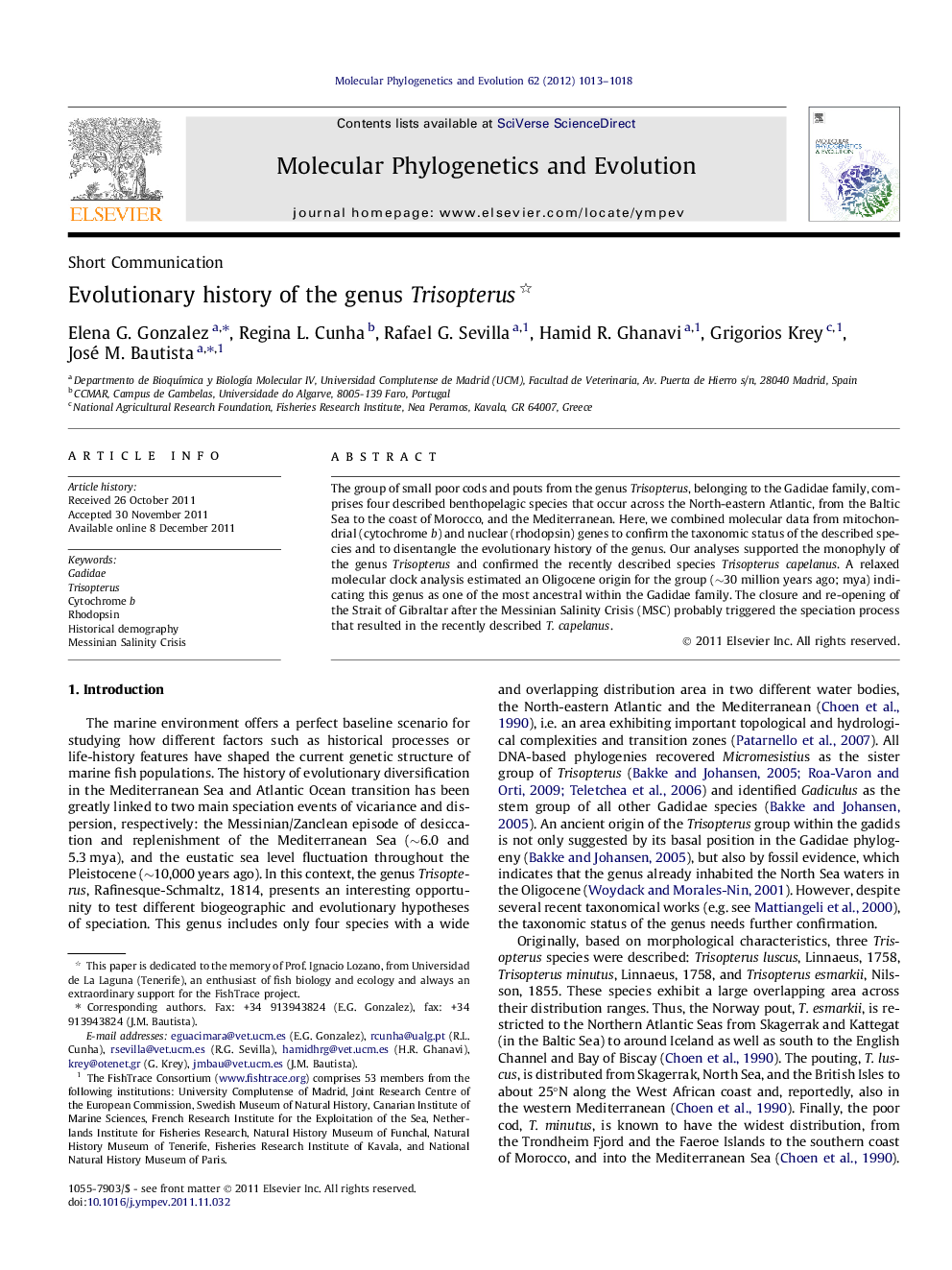| Article ID | Journal | Published Year | Pages | File Type |
|---|---|---|---|---|
| 5920324 | Molecular Phylogenetics and Evolution | 2012 | 6 Pages |
The group of small poor cods and pouts from the genus Trisopterus, belonging to the Gadidae family, comprises four described benthopelagic species that occur across the North-eastern Atlantic, from the Baltic Sea to the coast of Morocco, and the Mediterranean. Here, we combined molecular data from mitochondrial (cytochrome b) and nuclear (rhodopsin) genes to confirm the taxonomic status of the described species and to disentangle the evolutionary history of the genus. Our analyses supported the monophyly of the genus Trisopterus and confirmed the recently described species Trisopterus capelanus. A relaxed molecular clock analysis estimated an Oligocene origin for the group (â¼30 million years ago; mya) indicating this genus as one of the most ancestral within the Gadidae family. The closure and re-opening of the Strait of Gibraltar after the Messinian Salinity Crisis (MSC) probably triggered the speciation process that resulted in the recently described T. capelanus.
Graphical abstractDownload full-size imageHighlights⺠Evolutionary history and biogeography was studied in the genus Trisopterus. ⺠The monophyly of all the genera was confirmed. ⺠Relaxed molecular clock estimates suggest an Oligocene origin of the genus. ⺠Diversification of T. capelanus was related to vicariant events during the MSC.
